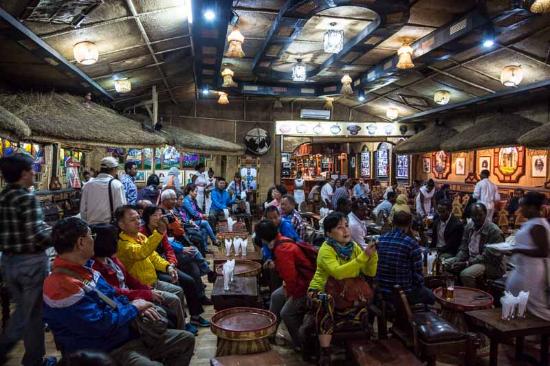 There are few places in the world as diverse as the Addis Ababa airport. Ethiopian Airlines is Africa’s most connected carrier. It’s a hub for the entire continent and the panoply of nationalities crowding its terminal is mind-boggling.
There are few places in the world as diverse as the Addis Ababa airport. Ethiopian Airlines is Africa’s most connected carrier. It’s a hub for the entire continent and the panoply of nationalities crowding its terminal is mind-boggling.
It’s been the same for my nearly half century traveling through Africa, with the important difference it’s now so much bigger and there’s so many more people from virtually every part of the world. There is one additional noticeable difference, though:
There are lots more Chinese. I’ve never been to China but trying to link all the Chinese passports I see going through security and gate checks with the faces linked to them isn’t easy, at least not for me.
I realized long ago that there are many considerably different ethnic groups that all call themselves Chinese now, or at least carry Chinese passports.
And most of them are extremely young and… very happy. The spirit in this otherwise overcrowded, poorly lighted and ghastly furnished airport rings brilliantly with all these only young men on their way to adventure.
They are excited, reactive and almost constantly smiling. I once was delayed with three of them on a flight to Entebbe and the delay grew with all the passengers’ scowls… except these three Chinese young guys.
They used to the time to buy a Hewlett Packer computer from a store opposite the gate in Duty Free. Apparently unconcerned that the flight would be called at any moment, they unpacked the machine like it was Wedgewood China.
Once out of the box, the pieces more or less properly connected, they were stymied. I waited no longer. I know no Asian languages and I tried French, that didn’t work, then one of them replied to me in Swahili!
His Swahili was pretty good! Swahili is useless for technical devices so that really didn’t get us far in explaining booting up and wifi and necessary adapters, but the three of them were so enamored of an American befriending them that we abandoned the technological age for simple conversation.
Even though each one of them proudly showed me their passport, I neglected to read below the Mandarin script to the roman numbers that would have revealed their age. But they were young,
excited and happy.
What they displayed to me in their passport was the Ugandan stamp, and it wasn’t just a visa. It was a non-resident permit that allowed them to work and the initial step towards Ugandan citizenship.
In the subsequent years I learned what all this meant. China has literally built sub-Saharan Africa in the last two decades. The modern highways, dams, power stations and even abattoirs and hospitals are all Chinese built. This isn’t aid in the way western powers think of it, but it’s essentially the same.
Western aid is arrogantly offered as charity. Of course it isn’t. As Trump has so cruelly shown, it is offered, amended, retracted and offered again as the country receiving it does America’s bidding.
China is more transparent. It’s pure capitalism. Everything is a loan and repayment is not hidden. The artifice, in my opinion, comes with the presumption the loan will be easily repaid, because it never is.
China has thrown the World Bank and other development agencies in chaos, because their requirements for giving a loan meet no normal capitalist standards. They give it to extend their influence and for many other reasons, I’m sure, one of which is to provide under privileged rural Chinese a new lease on life.
So over 20 years I’ve watched these kids grow up and take their place in Africa. Don’t get too racist about this. They aren’t universally beholden to China. From what I can tell, after only a few years, China is a distant memory for them.
They marry locally, create small businesses and become the 21st Century colonial homesteaders that the old Brits and legionnaires were in centuries past. And very much like them, in less than a generation they’ve truly become Africa. Their “motherland” is no more.
Where the ominous Chinese action is centered is in the loan that is never repaid. Then the Chinese take over ports (as they have in Sri Lanka) or power stations (as they have in Chad). Their influence becomes cemented and soon turns into control.
It’s not nice, but it was never pretended as anything else. Africans often live from moment to moment certain they can overcome every obstacle as they have in the millennia before. In the Chinese they may have met their match.